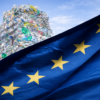Attention to the quality and safety of its products is one of the main prerogatives of Teamplast.
“Many of our customers belong to the food and medical-pharmaceutical sectors; for this reason – says Simone Costanzelli, owner of the company – it is essential for us to obtain the ISO 9001:2015 and UNI EN 15593/2008 certifications, which guarantee the customer a product made according to international regulations, safe, reliable and compliant with the final use”.
This year too, in fact, the company has obtained international certifications that dictate the requirements for packaging to comply with hygiene and safety standards, especially if it is intended for contact with food.
Specifically, the ISO 9001:2015 certification recognizes corporate excellence in the management of production processes in terms of quality and guarantees a constant commitment to improving its processes. The UNI EN 15593/2008 certification is, instead, specific for packaging intended for contact with food and examines the requirements in order for the packaging to be suitable and above all safe.
Quality and process safety: what does ISO 9001:2015 certification consist of?
ISO 9001 is the international standard published by the International Organization for Standardization (ISO) for Quality Management Systems. The certification collects documented processes and procedures that define the production and customer care rules implemented by the company. In essence, it is a series of documents that certify the high quality standard of production processes and attention to the end customer. The goal is to favor companies that prefer an excellent and safe production system and encourages them to constantly improve. This certification is not only an important synonym of quality but is above all a guarantee for the customer, because the process to obtain it is complex and does not leave out any detail.
Safe and compliant with food hygiene regulations: what the UNI EN 15593/2008 certification requires
When it comes to packaged food products, it is easy to think that the companies involved must follow strict control policies that guarantee the safety and hygiene of the food contained. Inappropriate and uncertified packaging, in fact, can lead to rapid deterioration of the food, compromising its safety and, consequently, the health of end consumers.
The norm UNI EN 15593/2008 entitled “Packaging – Hygiene management in the production of packaging intended for food products – Requirements” It was created precisely to guarantee the hygiene and safety of packaging intended for direct contact with food..
The ever-increasing attention to the entire food supply chain, in fact, has resulted in the introduction of rules aimed at companies, to ensure that they adopt a compliant and safe production system within their own organization. Furthermore, the standardization of controls and processes favors the marketing of packaged foods even outside their own national borders, establishing shared rules that guarantee the suitability of packaging for contact with food.
The main requirements of the UNI EN 15593/2008 standard involve the application, through a hazard analysis based on the HACCP methodology, of a management system for the hygiene and safety of materials in contact with food and the adoption of a tested and effective traceability method.
Quality Policy: a further commitment to production excellence
In addition to international certifications, we at Teamplast wanted to take a further step forward in the company's production policy, creating a internal Quality Policy document that details the entire process, from the choice of raw materials to the shipment of the finished product.
What does this mean exactly? As we have just seen, international standards imply the adoption of effective and uniform processes, regardless of individual production characteristics. However, each company also has its own “life” that cannot always be standardized at a general level, but on the contrary, is specific to that same reality. A trivial example could concern the waste collection and disposal process: this aspect is not always covered in depth by certifications, or it may happen that the rules are a bit too generic. For this reason, we have collected a set of detailed rules and procedures that delve into and specify all company processes and practices so that they meet the highest quality standards, integrating some aspects that we consider fundamental for the creation of a high-quality product.
For more information on our certifications, visit the page: CERTIFICATIONS


![[:it]certificazioni teamplast[:]](https://www.teamplast-srl.it/wp-content/uploads/2024/01/Post-Blog-e-social-Teamplast-1080-×-1080-px-7.png)


